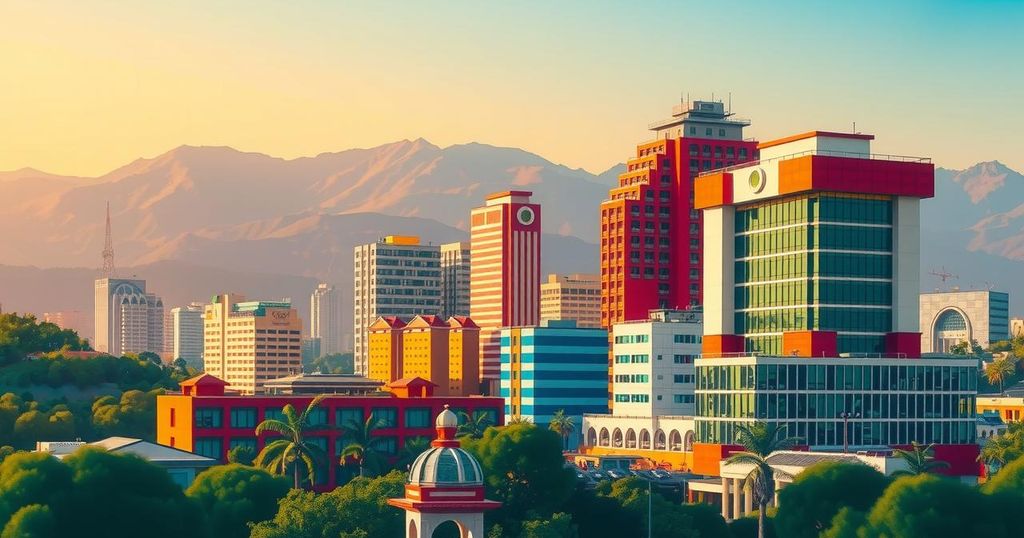U.S. Secretary of State Marco Rubio has canceled his upcoming Kenya visit amid escalating concerns regarding Kenya’s relationship with China and domestic corruption. The cancellation follows President Ruto’s China visit and highlights tensions over regional affiliations. This decision reflects a growing strain in U.S.-Kenya relations and potential impacts on foreign investment and aid.
U.S. Secretary of State Marco Rubio has unexpectedly canceled his visit to Kenya, slated for next week. This decision is reportedly a response to Kenya’s increasing ties with China, corruption among officials, and controversial relationships with rebel groups in the Democratic Republic of Congo and Sudan. Rubio was set to mark his first African diplomatic tour since becoming Secretary of State under President Donald Trump this January, with plans also to stop in Ethiopia.
The cancellation, confirmed by Washington officials without an official explanation, comes closely on the heels of Kenyan President William Ruto’s recent five-day visit to China. During that trip, Ruto met with Chinese President Xi Jinping and others, in part to boost trade and infrastructure connections. This closer relationship with Beijing has raised eyebrows in Washington.
Ruto’s visit also included outspoken criticism of Russia’s actions in Ukraine, coupled with condemnation of a recent U.S. Security Council vote in favor of Russia, which has likely strained ties further with the U.S. In addition, concerns are rising over Kenya’s hosting of Sudan’s Rapid Support Forces in Nairobi and alleged support for rebel factions in the DRC, leading many diplomats to express frustration with the Ruto administration’s regional policies.
In the context of broader U.S. foreign policy, there are indications that the Trump administration is considering closing up to ten U.S. embassies and seventeen consulates worldwide, including several in Africa. This includes posts in the Central African Republic, Congo, Eritrea, Gambia, Lesotho, and South Sudan, putting further pressure on U.S.-Kenya relations.
On the ground, the reaction to Secretary Rubio’s decision has been mixed. Troy Fitrell, the top State Department official for Africa, emphasized the U.S. foreign policy focus on supporting American businesses in Africa. However, the investment climate appears to sour with reports that multiple U.S. companies have retreated from planned billion-dollar investments in Kenya, frustrated by rising corruption levels.
This retreat from investment comes amidst significant fallout from Kenyan government decisions, which many experts say could have cost the country billions in expected opportunities since Ruto’s visit to the White House last year.
USAID’s closure, another major funding stream for Kenya, marks a significant shift in the relationship. Social media discussions reflect a growing discontent, with some critics suggesting that Ruto’s timing for his China trip was unwise given the current geopolitical climate between the U.S. and China. Steve Mbogo, a prominent commentator, expressed that Ruto is now perceived as betraying the U.S.
In remarks to People’s Daily, Machakos Deputy Governor Francis Mwangangi pointed out that the cancellation likely tied back to worries over corruption and Kenya’s ties to local rebel factions, indicating an increasingly complex diplomatic relationship ahead.
The abrupt cancellation of Secretary Rubio’s visit to Kenya underscores the growing tension between the U.S. and Kenya, fueled by Kenya’s ties to China, corruption amongst its leaders, and controversial regional relations. President Ruto’s recent state visit to China and mixed reactions on social media spotlight the challenges facing U.S.-Kenya relations. As Kenya navigates its partnerships, the implications for investment and diplomatic ties remain critical.
Original Source: hornobserver.com






